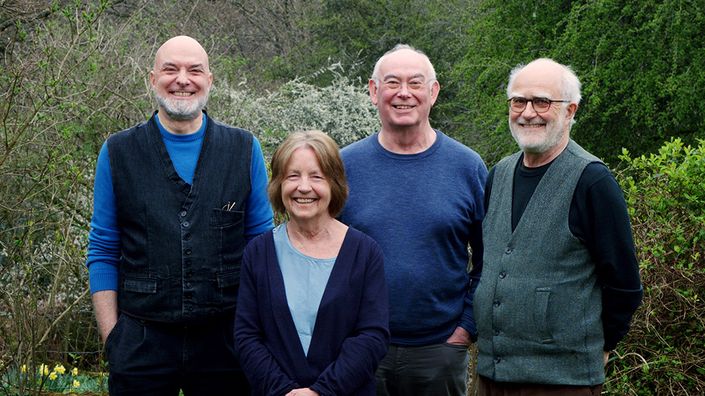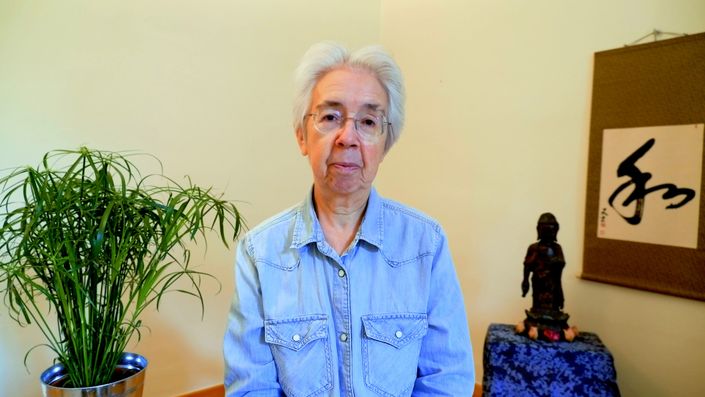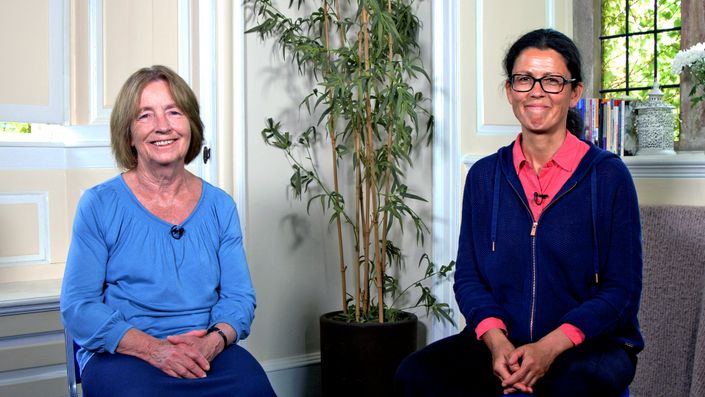Reimagining The Eightfold Path
Join Bodhi College for an exploration of the Buddha's path to freedom.

What is the eightfold path?
The eightfold path is the Buddha's prescription for ending suffering. It outlines eight aspects of a contemplative life. Each aspect reinforces the others, creating a compound effect that elevates our meditation, ethical behavior, and wise understanding of life. This is the practice of appropriate view, intention, speech, action, livelihood, effort, mindfulness, and mental collectedness.

Study at your own pace
This easy-to-use online course is available to all. It comprises six units that form a program of instruction, discussion, meditation, and inquiry. Each unit contains around 60-90 minutes of material to study, as well as contemplative exercises. Support materials include downloadable workbooks and audio. You are free to study at your own pace, and will retain ongoing access to the material.
Benefits

6 hours of video guidance
From talks to guided meditations, discussions, and inquiry practices, Reimagining the Eightfold Path offers illuminating video content in manageable chunks. You'll also be able to download audio files and text for offline use.

Understanding through discussion
A strength of Bodhi College is the plurality of voices within the faculty. We don't always agree, and this helps us find a reasonable way forward based on dialogue and discussion. Each unit contains a discussion with a range of viewpoints.

A fresh look at the Buddhist path
We'll be drawing on the discourses of the early Buddhist tradition, the Pāli canon. The aim is to look beyond fixed interpretations and understand what the practice of the eightfold path really might be in our world today.

A practical path
This is what all the theory comes down to. How do you show up in the world? How do you speak to people? What is the right way to gather the mind? What leads away from distress? What brings peace and contentment?

Bring your practice into all areas of your life
Progress on the Buddha's path depends on more than meditation alone. The practice of ethics and wise understanding are also key to success.

Expert instruction
Martine, Stephen, Jake, and Christoph are members of the Bodhi College faculty. Together, their experience encompasses the forests of Thailand, Korean Sōn monasteries, Insight Meditation centers in the US and Europe, and teaching on MBCT courses.
Course Curriculum
Meet Your Teachers

Stephen Batchelor
Stephen is a Buddhist teacher and writer known for his secular or agnostic approach to the Dharma. Formerly a Buddhist monk in the Tibetan and Zen traditions, he is the translator and author of several books including Buddhism Without Beliefs, Living With the Devil and After Buddhism. What is this? Ancient questions for modern minds, was published by The Tuwhiri Project in 2019. His most recent book is The Art of Solitude.
Stephen considers Buddhism to be a constantly evolving culture of awakening rather than a religious system based on immutable dogmas and beliefs. In particular, he regards the doctrines of karma and rebirth to be features of ancient Indian civilisation and not intrinsic to what the Buddha taught. Through his writings, translations and teaching, Stephen engages in a critical exploration of Buddhism's role in the modern world, which has earned him both condemnation as a heretic and praise as a reformer.

Martine Batchelor
Martine studied Zen Buddhism under the guidance of the late Master Kusan at Songgwang Sa monastery until 1984. Her Zen training also took her to nunneries in Taiwan and Japan. From 1981 she served as Kusan Sunim's interpreter and accompanied him on lecture tours throughout the United States and Europe. She translated his book The Way of Korean Zen. Following Master Kusan’s death she returned her nun’s vows and left Korea.
Martine is the author of Principles of Zen, Meditation for Life (an illustrated book on meditation), The Path of Compassion, Women in Korean Zen, and Let Go: A Buddhist Guide to Breaking Free of Habits. Her latest book is The Spirit of the Buddha. She is the teacher of the online courses, Knowing How it Feels: Creatively Engaging with Habits and, with Stephen Batchelor, Secular Dharma.

Christoph Köck
Christoph was born in Vienna, Austria, and spent 17 years of his life as a Buddhist monk in the Theravadin tradition. He lived mainly in monasteries connected with Ajahn Chah in Thailand and the West. Currently he lives in Vienna, working as a psychotherapist in a private practice. He teaches Buddhism and meditation internationally, is trained to teach MBSR and MBCT, and is a faculty member of Bodhi College.

Jake Dartington
Jake began practicing meditation in 1995 and completed dharma teacher training with Christina Feldman. Jake leads retreats in the Insight Meditation tradition at Gaia House and other centres in the UK and Europe. He is trained to teach Mindfulness-Based Cognitive Therapy at Bangor University and holds a Masters degree in Philosophy and Buddhist Studies. Jake is a Bodhi College faculty member and known for his particularly relatable style of teaching.
Try a Guided Meditation with Martine Batchelor
Settling into the peace of equanimity.
Praise for Bodhi College courses
This is one of the most impressive online courses I have ever taken. Understandable as the four teachers are just outstanding.
An excellent course! I thoroughly enjoyed it, especially the multiple perspectives offered by the different teachers. It is refreshing to see such a complex and rich topic addressed from different angles through the perspectives of experienced teachers, rather than relying on a single point of view.
I loved the discussions amongst the teachers—and that it wasn't presented as something conceptual that everyone agreed on but rather that it was, and continues to be, a source of contemplation and practice for each of them.
Every aspect of this course was attended to thoughtfully, with a great deal of mindfulness. The teachers, all so knowledgable, were clear, gentle and inviting.
Although I am familiar with the material, my understanding has deepened. What amazes me is that you hear the teachings in new ways as your own practice deepens and also as teachers find new ways to talk about the subject.
Wonderful! Thank you all so much for a course that has deepened my understanding of mindfulness meditation and that has widened and moved my practice on.
A very clear, practical and helpful course. It helped me deal with some unhelpful habits and get a clearer view on how to engage with situations and feelings.

About Bodhi College
The aim of Bodhi College is to develop fresh ways of understanding the dharma today through rediscovering the core insights of early Buddhist teachings. Courses provide a contemplative education that inspires students to realize the values of the dharma (Buddhist teachings) in the context of this secular age and culture.
In the spirit of the Buddha’s teaching, Bodhi College is committed to a middle way of human awakening that integrates theory with practice, encouraging both personal fulfillment and social engagement.
Related Courses
You may also be interested in these online courses from Bodhi College and Tricycle.





